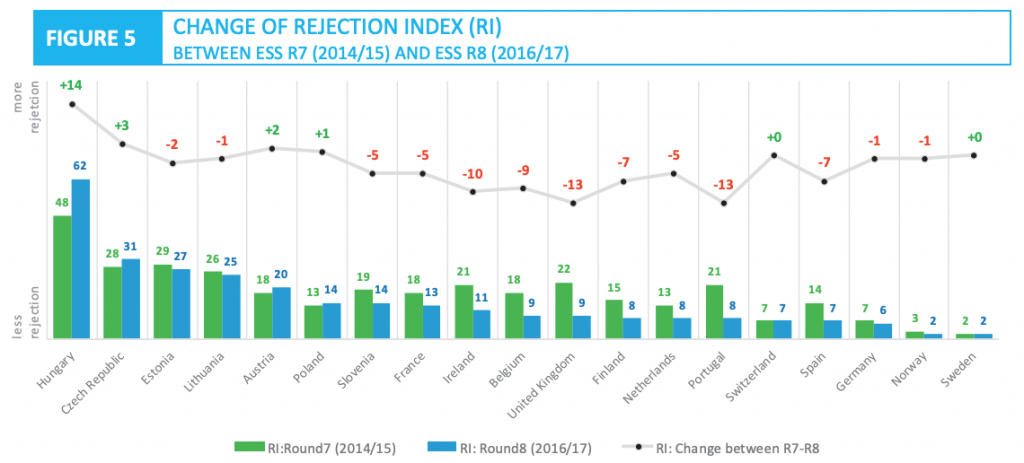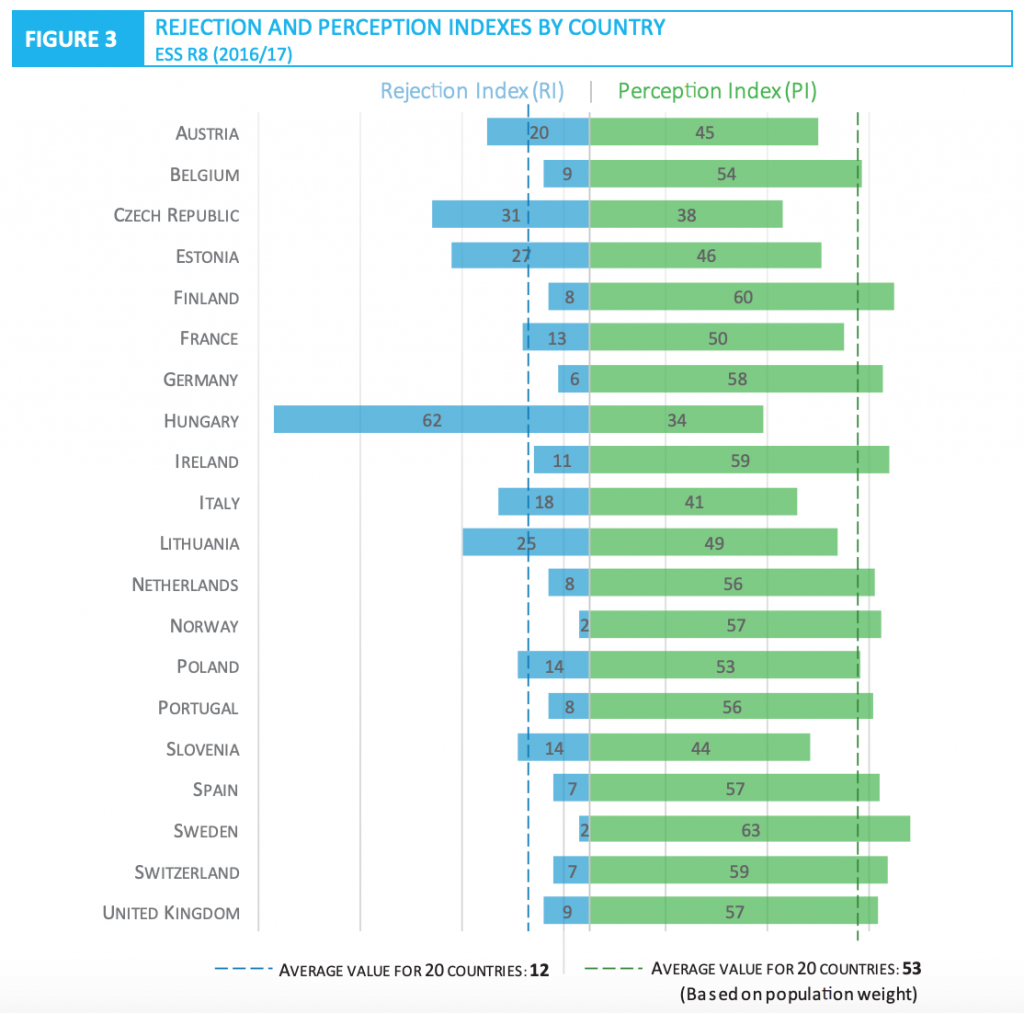Anti-migration feelings in Europe are the highest in Hungary

Change language:
A European survey shows that anti-migration feelings have not grown in most of Europe since the migrant crisis, while in Hungary, thanks to government propaganda, anti-migrant feelings are five times higher than the EU average.
Index reports about the findings of the European Social Survey, regarding nations’ attitudes towards migration.
The ESS is the most important and most trustworthy representative survey in Europe, following strict research guidelines, writes Index. Researchers have been looking into questions regarding migration since 2002 every two years. This way, the change in attitudes can be catalogued constantly and realistically.
Two Hungarian researchers, Vera Messing and Bence Ságvári, have analysed the data, concluding the following in brief:
- The 2015 migrant crisis did not change the European public opinion radically; it is not true that people became fed up with the idea of receiving migrants;
- Anti-migration feelings have grown mostly in areas where migrants barely arrived to;
- The difference between the closed East and the open West is becoming more and more clear-cut;
- General opinion in Hungary is the most rejecting in Europe;
- Supporters of Fidesz and the right-wing in Hungary despise migration more dramatically than the right-wing populists of Western-Europe;
- Even the opposition left is more anti-migration than the Le Pen in France or the AfD in Germany, or any other radical right-wing parties in Western-Europe.
Orbán says that the main division between European nations is migration: one either supports it or not, everything else is less important.
It has to be noted that the statistics discussed below are based on the 2016-17 ESS findings. Index argues that it is possible that anti-migration feelings have grown Europe-wide since then, but if we take reason into account, it is unlikely that radical change has happened in these past two years, since the crisis has eased.

The most important finding of the survey is that attitudes towards migration are neutral in the long run: most of the European countries examined share more or less the same view on the benefits and drawbacks of migration. Besides, these views were stable throughout the years; in most nations anti-migration feelings have not grown.






